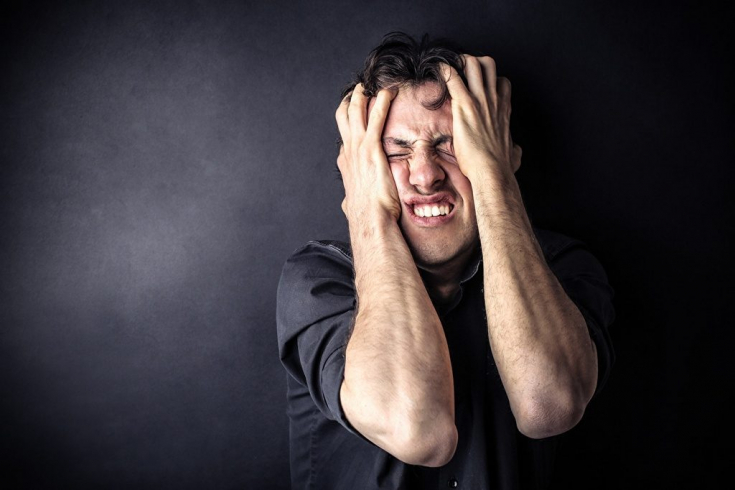How many times have we said: "I'm going crazy!", "I'm going crazy!", "I'm crazy!" during unrest, severe stress or emotional stress?! In this case, these are colorful expressions that indicate our mental state - the fear of going crazy, which is not accompanied by a loss of mind. At other times, the feeling of being able to actually lose control of one's mental faculties becomes more threatening. This situation seems real and leads to subsequent reflections, which only increase the state of anxiety and fear. But even so, it is more a fear of the condition we are experiencing and its consequences than a real danger.
The fear of losing control of one's mind is one of humanity's oldest anxieties that can turn into a real obsession and pathology. The editors of Estet-portal.com found out its manifestations, causes and current therapy.
- Disorders related to fear of going crazy
- How emotional activation in childhood affects feelings of fear of going crazy in adulthood
- How to help yourself and get rid of the feeling of fear go crazy
Disorders related to fear of going crazy
Usually, people who are afraid of losing their minds tend to watch themselves very carefully. They interpret altered mental states as a sign of impending "madness"; and loss of control. They also tend to think that continual reflection on the past is an indication that they are not inclined to "get out of it." Or they still view the problems of the future (thinking) as a trap that will lead them to "madness".
Subscribe to our page on Facebook!
Actually, it's hard to become "crazy" for one day. Loss of mental faculties, as during mental upheavals, is a rather rare event. This is certainly different from believing that it is possible to lose control during or as a result of a strong emotional activation, or a state of mental confusion caused by anxiety.
The fear of going crazy is present in a variety of disorders in which the vulnerability factors contributing to their occurrence can be identified. At the cognitive level, there are some factors that contribute to the vulnerability of a person at the moment of the thought that he can go crazy. In particular, beliefs regarding:
- probability of developing mental illness
- horror and unbearable state of mental illness
- inability to financially and emotionally confront such a possible state
- incompetence of medical staff (mistrust)
- unbearable physical and physiological sensations considered a danger signal (alarm sensitivity)
Among the various illnesses associated with an anxiety disorder health (called hypochondria), which is characterized by the fear of a serious illness, there is also the fear of going crazy. We're talking about anxiety mental health.

Generally, there are somatic symptoms that have no organic basis or intensity in relation to the existing problem: problems with the body and excessive awareness of what is happening in the body; fear of developing a serious mental illness. This results in resistance to medical indications and hypochondriacal behavior (requests for confirmation, searches for information on the Internet).
How emotional activation in childhood affects feelings of fear of going crazy in adulthood
The non-clinical condition that causes people to believe they are losing control of their abilities is the experience of a highly altered emotional state.
Subscribe to our page on Instagram!

We all have a window of emotional tolerance, within which we manage to experience our emotions and feel that we are able to control them. It was formed in childhood in interaction with our parents. The more they could accept and hold back emotions, the more they favored expanding that window.
If, for example, parents reacted depressively to the child's emotional activation, they did not contribute to its expansion. Therefore, people with a narrower window are more likely to perceive emotions as threatening and difficult to control. The moment they leave this window, they are perceived as dangerous, causing fear of losing their minds.
Even so, it's not about "madness" but training to widen our window to be more flexible and be able to live our emotions without the fear of becoming "crazy" ;.
How to help yourself and get rid of the feeling of fear of going crazy
Accept emotions and don't be afraid of them
We can try to change the perspective by which we observe our emotional, physical and physiological reactions - the normal responses of our body, which, if we learn to recognize and accept, are not so terrible. You just need to learn to listen to them.
Curiosity helps us to observe what is happening to us, not assessing it as something dangerous and threatening, but simply perceive it as a new experience. No one has ever gone crazy with emotion, sadness, joy or anger.
Learn to meditate and normalize somatic symptoms
Mindfulness meditation can certainly help in this regard by allowing the person to stay "here and now" and observe yourself, suspending judgment. Obviously, this is a practice that must be learned and used with a full understanding of its theoretical reference principles.
Identifying the stimuli that contribute to the vicious cycle (physical/emotional state - perceived threat - increased physical/emotional state) can help prepare for moments of greatest vulnerability, meet them with openness and acceptance.
Psychological factors play an important role in the increase in somatic symptoms. If we evaluate dizziness as something terrible, we are more likely to worry and support it emotionally and somatically.
The solution to the problem can be found in psychological techniques
Cognitive Behavioral Technique (Therapy) from this point of view offers useful tools to better manage physical symptoms and reduce the overall stress that can aggravate them. Therefore, it is recommended to rely on a professional with whom you can purchase the most functional methods.

The therapeutic goal is twofold:
- learn to normalize somatic changes without fear;
- reduce the feeling of being vulnerable and at the mercy of your emotions.
Hence, the main purpose of the work is to teach the patient to normalize the symptoms by attributing them to harmless causes. Agreeing to be with your emotions and physiological reactions, to live with them as they are, not succumbing to fear of losing your mind.
The fear of going crazy is one of the most common fears that cause panic disorder or obsessive disorder. The main thing in getting rid of this feeling is to lower the “cauldron temperature”, to reduce the level of emotionality, which are “like a vessel full of water, where one drop is enough to overflow the vessel.” and launch defense mechanisms. It is important to be aware of your emotional state and accept yourself, which will help you gain confidence and the ability to emotionally control in any situation.
More useful information on our channel in Youtube:








Add a comment